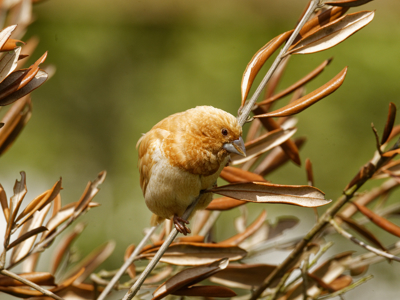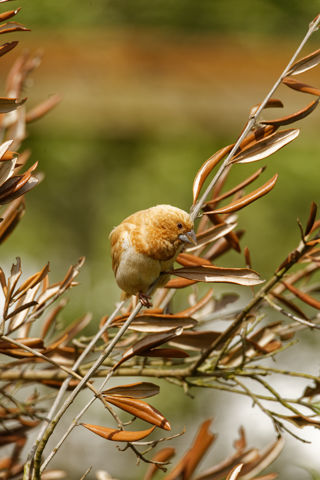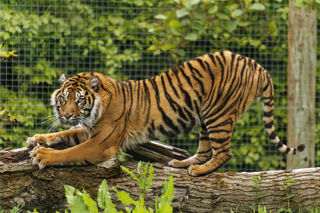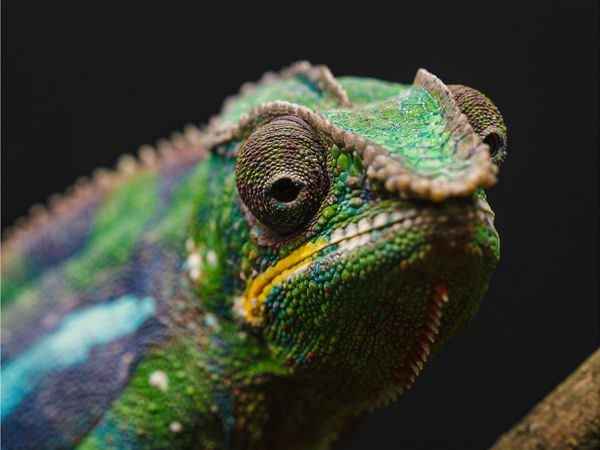
Bengalese Finch
Bengalese finches were domesticated from the white-rumped munia. The date of domestication is unknown but it occurred in oriental Asia. They have lighter plumage than their wild counterparts with mostly light brown feathers, a blacker tail and cream lower body. Juveniles are lighter brown and grey with light striping for camouflage.

The Bengalese finches will breed throughout the year. This finch species has a distinctive courtship routine that the male performs on approach to the female. He lowers his head with his neck feathers ruffled, which shows off his fanned out tail. Then he moves towards her, twisting from side to side with a bounce at the end. Finally he puffs out his feathers and sings. If he is accepted he will help the female build the nest by bringing material to her nest site.
Once the female has built the grass nest both male and female defend it. Chicks become independent at 35 to 38 days old. Bengalese finches are known to be excellent foster parents and very successful breeders.

The diet of the Bengalese finch is made up of seeds, mainly from grasses. Their wild counterparts are regarded in some areas as pests for eating rice and millet crops.
The wild ancestor, the white-rumped munia, is classified as Least Concern by the IUCN. This bird is regarded as common throughout its range despite capture for the pet trade and continued domestication.
Key Facts:
Conservation Status: Not Evaluated
Habitat: Grassland
Diet: Seeds
Height: 10 – 12cm
Weight: 10 – 13g
No. of young: 3 – 6
Life Span: Unknown

SUPPORT OUR ANIMALS
If you're looking for an alternative way to donate to Twycross Zoo, you can help support our animals and our zoo keepers by purchasing something from our Amazon Wishlist!
Updated regularly by our zoo keepers, the items on the list help to provide enrichment for our animals and keep their habitats well maintained.
Every donation helps us as a conservation charity.
